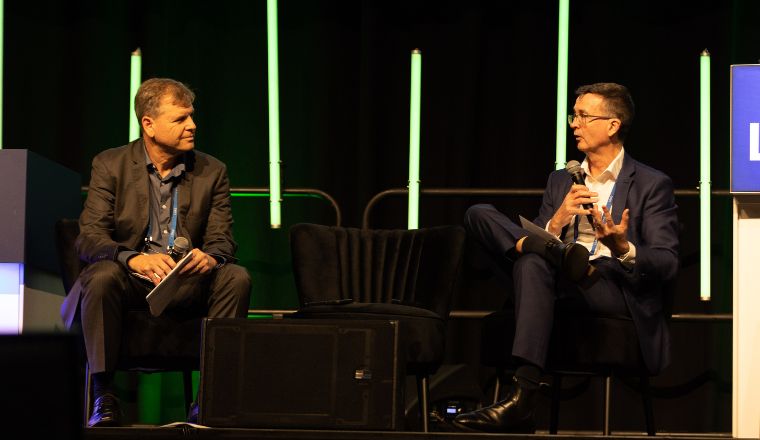
LGAQ Head of Assist Glen Beckett and ECQ Electoral Commissioner Pat Vidgen
By Glen Beckett / LGAQ Head of Assist
Queensland’s local government elections serve as a crucial pillar of the state’s democratic framework, where every four years candidates vie for the opportunity to represent their local community.
Recent electoral history has seen a worrying downward trend in the number of candidates seeking nomination, with 1,757 candidates in 2016 falling to 1,574 candidates at the last election in 2020. It is no easy thing to put your hand up to represent your local community and once you do it’s not an easy process to nominate and comply with all the necessary electoral and ongoing governance requirements.
And whilst Queensland mayors and councillors are the best paid locally elected officials in the nation, the remuneration on offer is unlikely to be fair compensation for many experienced and capable community members who already hold well-paying roles in the private or public sectors. Hence, it is those candidates that are truly community minded that will often seek nomination.
So, what can we expect regarding the 2024 local government elections?
Well firstly, there is new legislation—both adopted and pending—and new requirements on all candidates. This means all candidates will need to be attentive to the new rules, and alert to the potential of making mistakes.
From bank accounts and how to vote cards, to electoral caps and reporting campaign gifts and expenditures, there are plenty of reasons to pay close attention to what the Electoral Commission of Queensland (ECQ) says, and the resources they make available.
If the ECQ is not already in your quick dial list, it should be.
Many candidates in 2020 received infringement notices for noncompliance, and it is my hope that this number will be significantly reduced this year. As they say, the best advice is to seek advice, and candidates should contact the ECQ regarding any matters of concern or clarification.
For existing councillors seeking to recontest, it is important to always prioritise upholding the good reputation of council and local government more broadly. Too often, community candidates will misrepresent, misunderstand or misconstrue the reasons why certain decisions were made or will seek to unfairly question the scope and scale of councils’ capabilities and responsibilities.
Local communities often don’t understand the breadth and complexity of the legal and operational realities that councils face, nor the true cost of delivering the essential services and infrastructure needed to maintain community liveability.
Elections provide a great opportunity to continue to educate communities about the role, functions and value of local government, but rogue candidates have also been known to confuse and obfuscate local residents.
The continuous positive promotion of your council and local government is in everyone’s best interest.
It’s no secret that electioneering has started in earnest in a number of locations around the state, and this will likely ramp up to all communities.
Concerningly, social media will again be an ugly battle ground in many localities. Social media is still very much the ‘wild west’ in terms of personal protections against unfounded and slanderous commentary and consequently, there will be plenty of things posted that really should not see the light of day.
If you are active on social media or are intending to use it for campaigning purposes, please look after your mental health and seek professional support if the use of these tools creates anxiety and stresses for you.
Whilst nothing compels you to be on these platforms, their usefulness as a campaign tool is well documented. Finding a healthy balance will be important, as will be the daily need to manage these digital commitments well. The LGAQ will soon be releasing an updated social media guide for elected members to help in this regard.
Sitting councillors are already recognised as local leaders and—rightly or wrongly—will often be held to a higher standard by voters than other community candidates. Leading by example will be expected and will remain the case in the lead up to election day—not forgetting there will be the need to balance daily councillor duties with any electioneering activities.
It is critically important that sitting councillors seeking re-election separate these activities, so as to absolutely ensure that no question or claim can ever be raised that council resources were used for election purposes.
Queensland’s local government elections are a testament to the vibrancy of democracy at the grassroots level. All candidates will face a multitude of challenges, from financial constraints to the need for community engagement, as they contest for one of the 578 local leadership positions on offer.
The experience leading up to election day is a dynamic and demanding one, requiring dedication, resilience, and a deep commitment to public service.
Ultimately, successful candidates in Queensland’s local government elections are those who can connect well with their constituents by articulating a compelling and positive vision for their community and region and navigate all the intricacies of local politics with grace and determination.